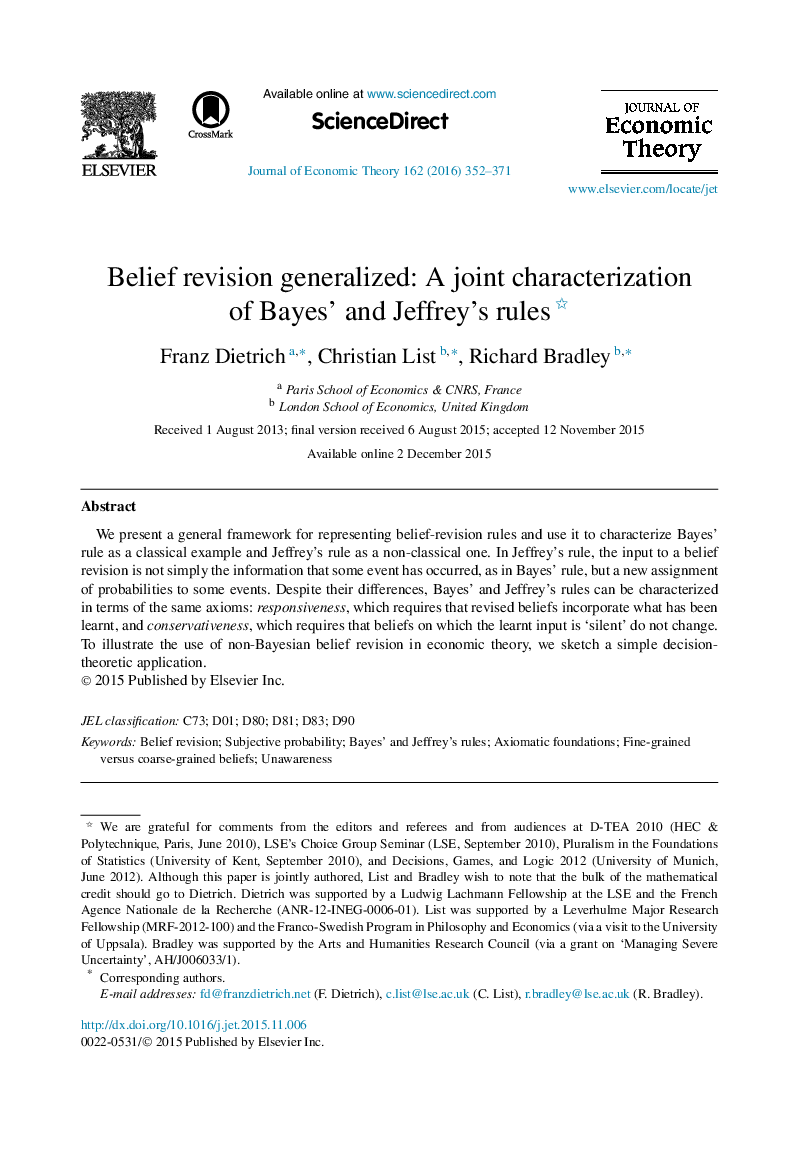| Article ID | Journal | Published Year | Pages | File Type |
|---|---|---|---|---|
| 7359544 | Journal of Economic Theory | 2016 | 20 Pages |
Abstract
We present a general framework for representing belief-revision rules and use it to characterize Bayes' rule as a classical example and Jeffrey's rule as a non-classical one. In Jeffrey's rule, the input to a belief revision is not simply the information that some event has occurred, as in Bayes' rule, but a new assignment of probabilities to some events. Despite their differences, Bayes' and Jeffrey's rules can be characterized in terms of the same axioms: responsiveness, which requires that revised beliefs incorporate what has been learnt, and conservativeness, which requires that beliefs on which the learnt input is 'silent' do not change. To illustrate the use of non-Bayesian belief revision in economic theory, we sketch a simple decision-theoretic application.
Related Topics
Social Sciences and Humanities
Economics, Econometrics and Finance
Economics and Econometrics
Authors
Franz Dietrich, Christian List, Richard Bradley,
